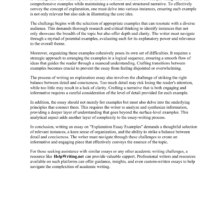Plastic waste has become an omnipresent element of contemporary life, yet its implications extend far beyond mere inconvenience or aesthetic degradation. While many individuals tend to view discarded plastic as an isolated issue—dominated by images of littered beaches and overflowing landfills—there lurks a far more insidious crisis, intricately interwoven with climate change. A deeper examination of this phenomenon reveals a multifaceted challenge that has dire consequences for our environment.
At the outset, it is essential to consider the sheer magnitude of plastic production. Since the mid-20th century, the global output of plastic has skyrocketed, with more than 368 million tons generated annually. This figure is projected to double by 2030, leading to an existential threat that is often overlooked. The process of creating plastic—from the extraction of fossil fuels through refining and polymerization—is carbon-intensive, emitting vast quantities of greenhouse gases. Thus, every piece of plastic manufactured adds a notable increment to the global carbon footprint, fueling climate change.
Once plastic products reach their end-of-life, their trajectory becomes no less alarming. A mere 9% of all plastic waste is recycled, while approximately 12% is incinerated. The rest, upwards of 79%, accumulates in landfills or the natural environment. This staggering percentage does not merely vanish; some plastics take hundreds, if not thousands, of years to degrade. During this protracted decay, they release toxic substances into surrounding ecosystems, exacerbating health crises and threatening biodiversity.
One of the most striking aspects of plastic waste is its ability to infiltrate even the most remote habitats. Microplastics—tiny fragments resulting from the breakdown of larger plastic items—have been discovered in the depths of the ocean, within Arctic ice, and even in the air we breathe. Such pervasive pollution indicates that no environment is immune—indicative of a planetary crisis that permeates the very fabric of our ecosystems. The transport of microplastics across vast distances through air and water currents reveals a troubling interconnectedness that complicates the plastic dilemma.
Moreover, the impact of plastic waste extends to human health. Exposure to certain chemicals found in plastics, such as bisphenol A (BPA) and phthalates, has been linked to a range of adverse health effects, including hormonal disruptions and increased risks of chronic diseases. The ingestion of microplastics by marine organisms poses potential risks up the food chain, ultimately culminating in human consumption. The alarming potential for plastic contamination in food sourcing methods exposes yet another layer of vulnerability in the fight against climate change.
The interplay of consumer culture and plastic production exacerbates the crisis. The irony lies in the ease of obtaining single-use plastic items—convenience that often masks the long-term implications of waste generation. The insatiable demand for cheap, disposable products fosters a linear economy, moving from production to waste, without consideration for sustainability. This challenge underscores the necessity for a paradigm shift towards a circular economy, which prioritizes reuse and recycling rather than perpetual consumption.
In response to these growing concerns, various initiatives have emerged with the intent to mitigate plastic pollution. Policy measures, such as bans on single-use plastics and plastic bag fees, represent necessary steps towards reducing consumption. Educational campaigns aimed at raising public awareness are pivotal for encouraging individual responsibility and promoting sustainable practices. Nevertheless, a more robust and systemic change is crucial for catalyzing effective solutions to the plastic crisis.
Corporate accountability plays a critical role in tackling this issue. Many corporations engage in greenwashing—projecting an image of environmentalism without enacting substantial changes. Consumers are increasingly demanding transparency in production processes and advocating for conscientious sourcing of materials. Transitioning to biodegradable and compostable alternatives necessitates innovation and investment that transcends superficial marketing strategies.
Moreover, international collaboration is imperative in addressing plastic waste on a global scale. The recent discussions at various global environmental summits illustrate a growing acknowledgment of this pervasive issue. Reducing plastic waste will consequently depend on aligning national policies with international frameworks aimed at fostering a cleaner planet. Encouragingly, grassroots movements worldwide are pushing for more robust action, unearthing the collective potential of civil society in confronting this crisis.
Ultimately, the issue of plastic waste is not an isolated environmental quandary; rather, it is a manifestation of deeper systemic failures. Climate change, environmental degradation, and public health crises are interlinked, permeating through the lens of plastic pollution. Recognizing this intricate web reinforces the urgent requirement for comprehensive solutions that encompass not only waste management but also behavioral changes at individual, corporate, and governmental levels.
As we navigate this multifaceted climate crisis, it is vital to remain vigilant in addressing our relationship with plastics. Awareness is the first step toward transformation; however, sustained actions are imperative to mitigate the damages already inflicted upon the planet. The time to act decisively is now—before the full extent of plastic waste becomes an indelible part of our global environment, a crisis hiding in plain sight.








